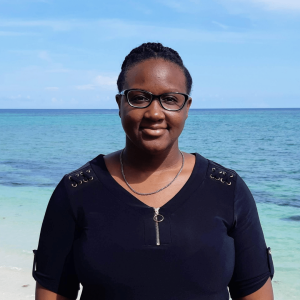Diving into Conservation: Building Ocean Leaders in South Eleuthera
Across the world, the ocean shapes cultures, sustains livelihoods, and supports extraordinary biodiversity. In The Bahamas, we are no strangers to coral reefs and all they provide—from food and coastal protection to livelihoods and natural beauty. As these ecosystems face increasing threats, inspiring and empowering the next generation of conservation leaders has never been more important.
Change often starts small, from those directly on the ground—or in this case, in the water. Conservation is not just the domain of expert scientists; it’s also about empowering future generations and sparking community-level action. A major part of improving coral health and resilience lies in the smaller steps: raising awareness of the issue, sharing education about solutions, and engaging communities in actionable initiatives.
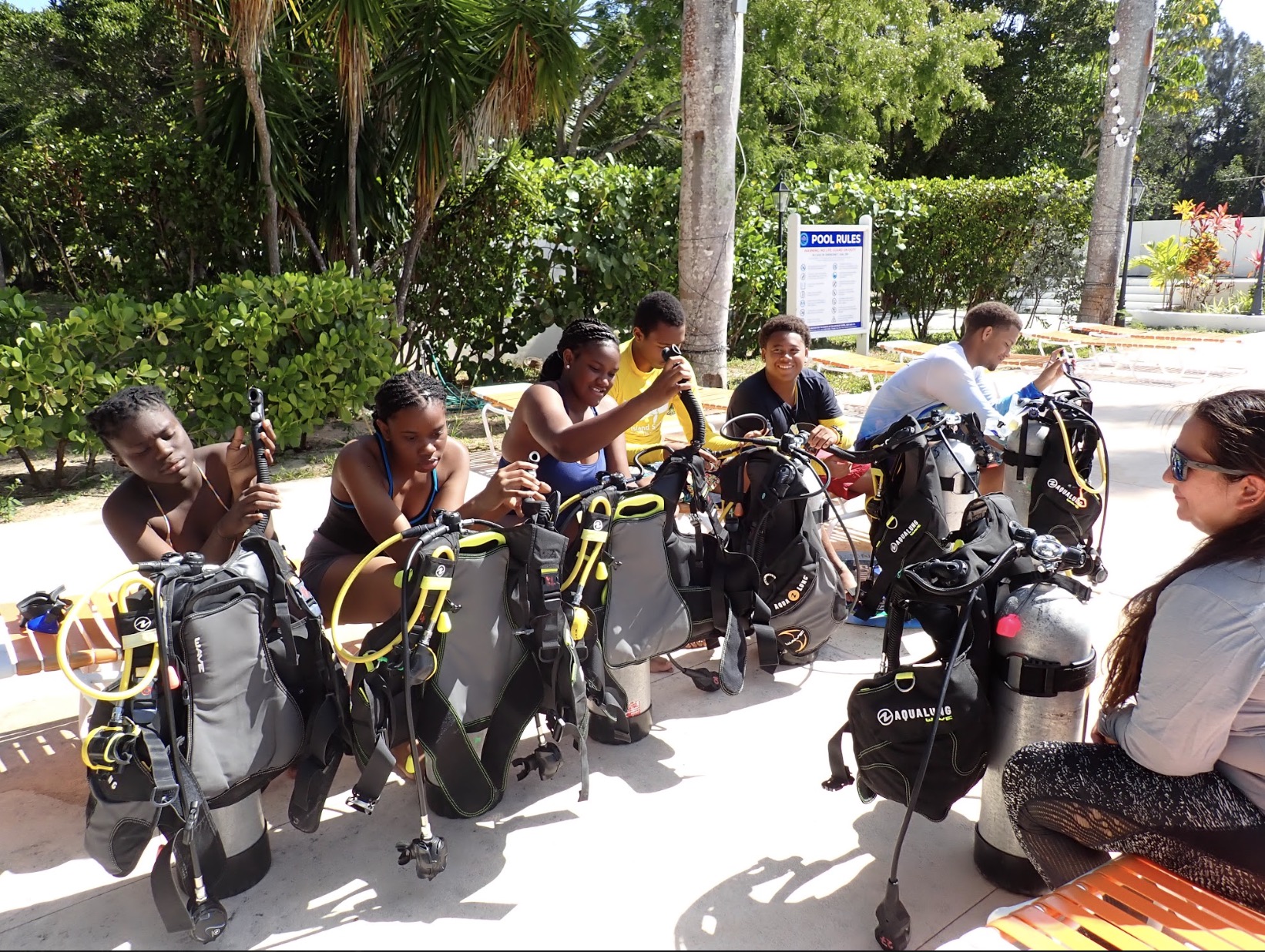 Young Leadership Program Participants: Amelia Pratt, Gabryella Julien, Tracey Brown, Ethan Strachan, J’Den Austin, Quinten Kemp • Dive Instructors: Natalia Hurtado and Silia Woodside
Young Leadership Program Participants: Amelia Pratt, Gabryella Julien, Tracey Brown, Ethan Strachan, J’Den Austin, Quinten Kemp • Dive Instructors: Natalia Hurtado and Silia WoodsideBased at the Cape Eleuthera Institute, the Bahamas Coral Innovation Hub (BCIH) advances coral restoration while ensuring local communities are deeply involved. By building skills and creating opportunities for South Eleutherans to engage directly with conservation, the BCIH is working to secure a brighter future for both people and reefs. As part of this initiative, the BCIH provided training that gave South Eleutheran residents the opportunity to dive into the world of conservation.
This past summer, the BCIH partnered with several community engagement programs to inspire the next generation of ocean stewards by introducing participants to an exciting new skill—scuba diving—and fostering growth, confidence, and a deeper appreciation for the underwater world.
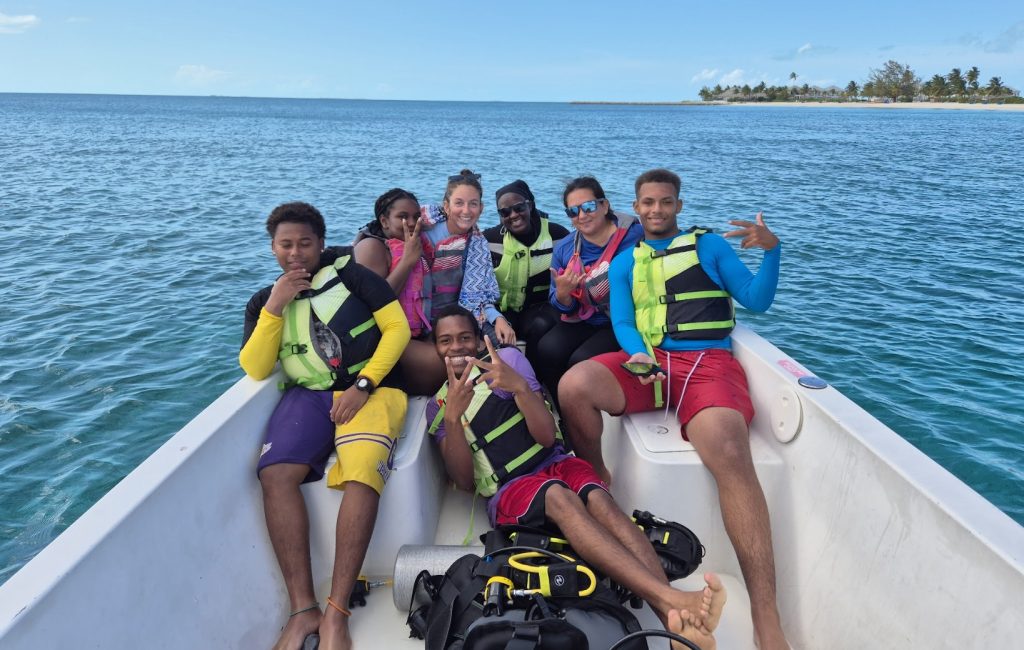
New Faces Below the Surface: Young Leadership Program
The Island School’s Young Leadership Program (YLP) was developed to equip young men and women of South Eleuthera with skills and mentorship to become leaders in their communities. Through training with the BCIH, participants not only built leadership capacity, but also began their journey into the world of diving.
From completing the required online training to learning dive safety and mastering equipment preparation, participants completed all the steps to become PADI Open Water Scuba Divers, allowing them to explore life below the surface.
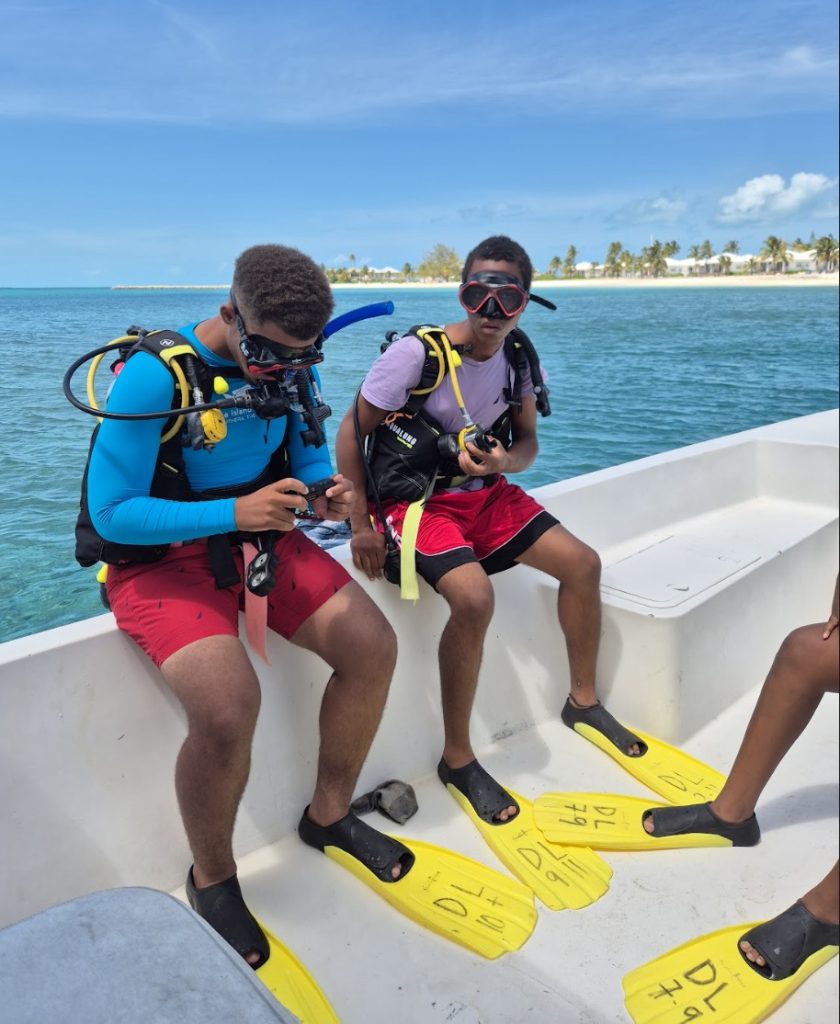 YLP Participants Quinten Kemp, Ethan Strachan
YLP Participants Quinten Kemp, Ethan Strachan
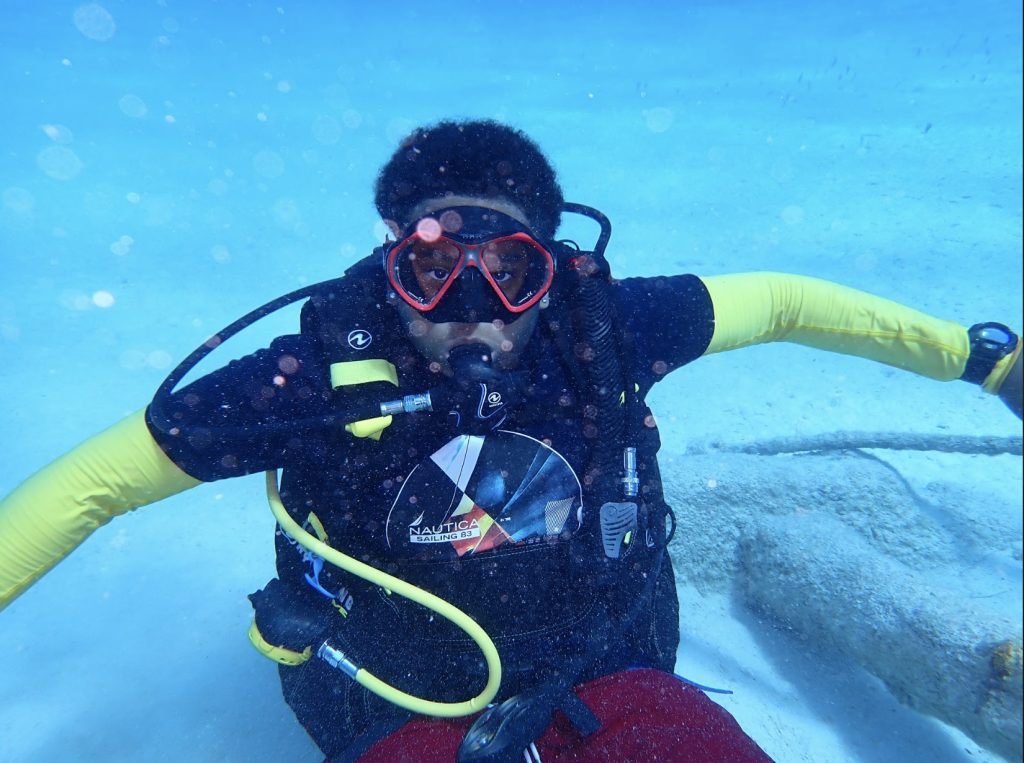 J’Den Austin during the Open Water Course
J’Den Austin during the Open Water CourseSummer Apprentice Program: Taking the Giant Stride
Participants in The Island School’s Summer Apprentice Program had the chance to get their feet wet—literally—by taking part in a Discover Scuba Diving experience. For those not yet ready to pursue a full Open Water certification, Discover Scuba is the perfect introduction to the underwater world, offering a first glimpse of the beauty coral reefs have to offer.
With masks on and fins in place, apprentices geared up and took the giant stride into an experience of a lifetime—their very first breath beneath the surface! Initial nerves quickly gave way to excitement as they encountered vibrant reef fish in their natural coral reef habitat. Alongside the dive, apprentices earned the PADI Coral Reef Conservation certification, equipping them to advocate for these delicate ecosystems.
Inspiring the Next Generation for Reef Conservation
To further their training, participants have the opportunity to pursue a specialty certification designed to teach coral restoration: the PADI Reef Rescue Diver. This course teaches divers proper techniques for maintaining coral nurseries—where corals are grown before planting them onto reefs. These skills are valuable throughout the Reef Rescue Network, a collaboration of dive organizations across the Caribbean working together in the restoration movement.
For these young stewards, the experience was more than just first-time diving or snorkeling. It was a chance to connect deeply with their environment and gain perspective on the importance of protecting it—beginning a journey to conserve the reefs that sustain life in The Bahamas. By opening doors to the underwater world, the BCIH is not only training new divers; it is nurturing the next generation of Bahamian conservation leaders.
About the Perry Institute for Marine Science (PIMS)
For more than 50 years, Perry Institute for Marine Science (PIMS) has advanced ocean stewardship around the world. Guided by our vision “Thriving Seas, Empowered Communities,” our scientists pair cutting‑edge research with hands-on conservation to protect coral reefs, mangroves, fisheries, and coastal habitats while supporting sustainable livelihoods. We collaborate with governments, NGOs, schools, and forward‑thinking businesses to turn data into action—whether restoring reefs through our Reef Rescue Network, mapping coastal ecosystems with drone and photogrammetry technology, or training the next generation of marine leaders. By discovering solutions, creating opportunities, and inspiring action, PIMS works to ensure a healthy ocean for people and the planet alike. Learn more at www.perryinstitute.org.
Dive Deeper
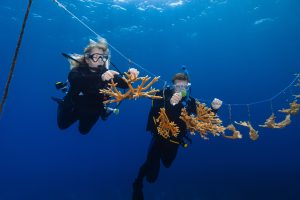
Stream2Sea Coral Care: The World’s First Reef-Positive Sunscreen
Stream2Sea Coral Care: The World’s First Reef-Positive Sunscreen | Perry Institute for Marine Science Conservation Partners Stream2Sea Coral Care: The World’s First Reef-Positive Sunscreen Discover why PIMS has partnered with

Build a Coral Reef for the Holidays | PIMS x Partanna
PIMS is partnering with Partanna to build a 100m² carbon-negative reef. Rick Fox is matching donations up to $25k. Help us build a sanctuary for the future.
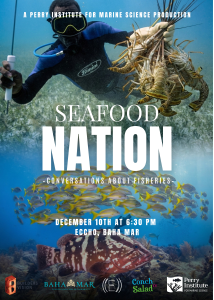
“Seafood Nation” Documentary Premiere Explores the Heart of Bahamian Culture and the Future of Fisheries
NASSAU, The Bahamas | December 5, 2025 – From the bustling stalls of Potter’s Cay to family kitchen tables across the archipelago, seafood is far more than just sustenance in
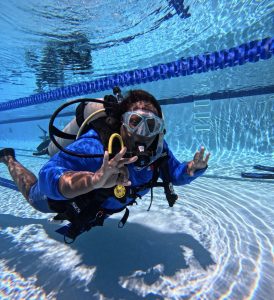
PIMS and Disney Conservation Fund Partner to Train 19 Government Divers
PIMS dive training in Nassau strengthened national coral restoration capacity across government agencies. Bahamas Dive Training Builds National Coral Restoration Capacity Last fall, between the months of September and October,
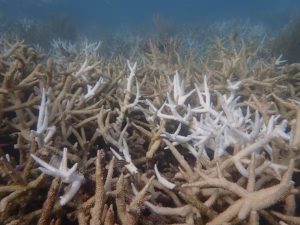
Florida’s Coral Reef Crossed a Line: What Functional Extinction Really Means for Elkhorn and Staghorn Corals
Reefs didn’t just bleach. They functionally vanished in one summer. A new Science study co-authored by researchers from the Perry Institute for Marine Science (PIMS) has found that Florida’s two
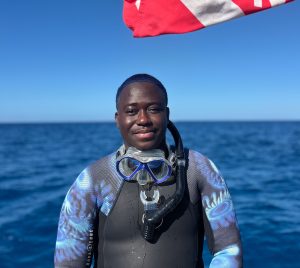
Q&A: Understanding the IDC Course at PIMS with Duran Mitchell
A former aquarist turned coral conservationist, Duran is passionate about understanding how all marine life connects. PIMS & IDC: Empowering New Dive Instructors for Marine Conservation PIMS & IDC: Empowering


